
Kota Lama: The Historic Heart of Semarang
Step back in time as you wander the charming streets of Kota Lama, Semarang's Old Town. This historic district, also known as the 'Little Netherlands,' is a treasure trove of colonial-era architecture and rich cultural heritage. The area is a well-preserved testament to Semarang's past, with buildings dating back to the Dutch colonial period, each telling its own story of the city's vibrant history. Explore the blend of European and Javanese influences as you visit iconic landmarks such as the Blenduk Church, renowned for its striking dome and classic Dutch design. The Marba Building, another architectural gem, stands as a reminder of the area's commercial prominence during colonial times. As you stroll through the cobblestone streets, you'll find numerous antique shops, quaint cafes, and art galleries, each offering a glimpse into the local culture and artistry. Kota Lama is not just about history; it’s also a lively hub for contemporary activities. The revitalized waterfront and bustling night markets breathe new life into this historic district, making it a perfect blend of the old and the new. Whether you're a history buff, a photography enthusiast, or simply looking to soak up the local atmosphere, Kota Lama offers a unique and enriching experience in the heart of Semarang.
Local tips in Kota Lama
- Visit early in the morning or late afternoon to avoid the midday heat and enjoy the best lighting for photography.
- Don't miss the Blenduk Church; its architecture is a highlight of the area.
- Try local snacks and coffee at one of the quaint cafes scattered throughout Kota Lama.
- Wear comfortable shoes, as the cobblestone streets can be uneven.
- Check out the night markets for unique souvenirs and a taste of local street food.
Kota Lama: The Historic Heart of Semarang
Step back in time as you wander the charming streets of Kota Lama, Semarang's Old Town. This historic district, also known as the 'Little Netherlands,' is a treasure trove of colonial-era architecture and rich cultural heritage. The area is a well-preserved testament to Semarang's past, with buildings dating back to the Dutch colonial period, each telling its own story of the city's vibrant history. Explore the blend of European and Javanese influences as you visit iconic landmarks such as the Blenduk Church, renowned for its striking dome and classic Dutch design. The Marba Building, another architectural gem, stands as a reminder of the area's commercial prominence during colonial times. As you stroll through the cobblestone streets, you'll find numerous antique shops, quaint cafes, and art galleries, each offering a glimpse into the local culture and artistry. Kota Lama is not just about history; it’s also a lively hub for contemporary activities. The revitalized waterfront and bustling night markets breathe new life into this historic district, making it a perfect blend of the old and the new. Whether you're a history buff, a photography enthusiast, or simply looking to soak up the local atmosphere, Kota Lama offers a unique and enriching experience in the heart of Semarang.
Iconic landmarks you can’t miss
Old Town Semarang
Explore Old Town Semarang's colonial architecture, vibrant culture, and delicious local cuisine in this historical gem of Central Java.
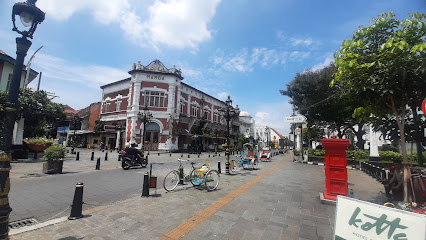
Museum Kota Lama
Explore the rich heritage of Semarang at Museum Kota Lama, where history comes alive through captivating exhibits and cultural experiences.
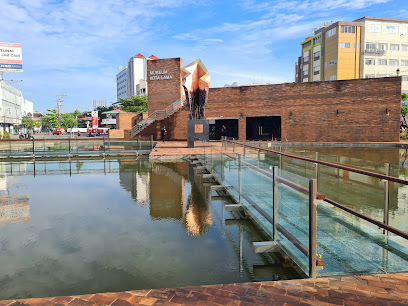
Rumah Akar Kota Lama Semarang
Discover the historical charm and vibrant culture at Rumah Akar Kota Lama Semarang, a must-visit landmark in Central Java for every traveler.
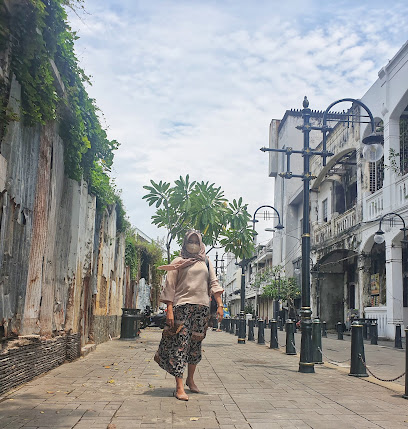
The Groot - Kota Lama Semarang
Explore the enchanting landscapes of The Groot in Kota Lama Semarang, where history meets nature in a breathtaking scenic retreat.
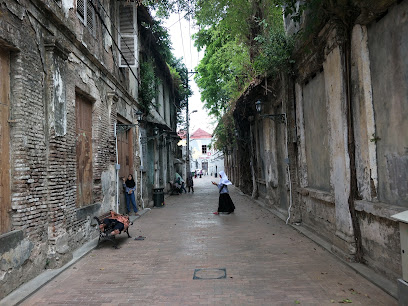
taman kota lama
Explore Taman Kota Lama, a serene park in Semarang, where nature meets history in the heart of Central Java.
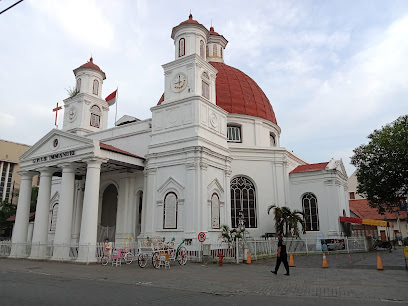
Kantoor van de Nederlandsch-Indische Levensverzekering en Lijfrente Maatschappij (NILLMIJ)
Explore the architectural beauty and rich history of NILLMIJ, a captivating historical landmark in Semarang, Central Java.
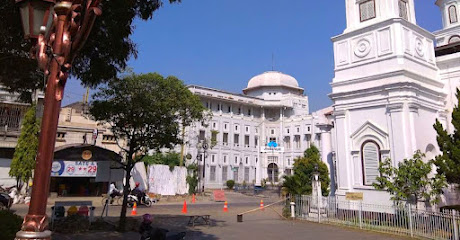
Rumah Pompa Kota Lama
Explore Rumah Pompa Kota Lama, a historical landmark that encapsulates Semarang's colonial past amid beautiful gardens and captivating architecture.
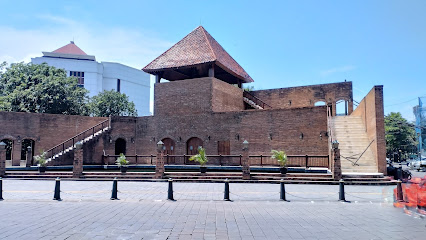
Wisata Millennial Kota Lama Semarang
Discover the blend of history and modernity at Wisata Millennial Kota Lama Semarang, a vibrant cultural hub in Central Java.
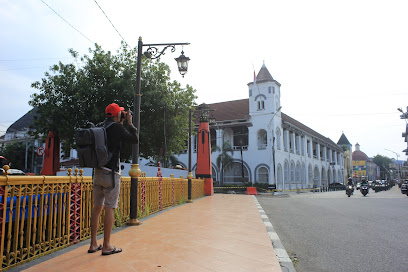
sumur tua kota lama
Explore Sumur Tua Kota Lama, a historical gem in Semarang that embodies the rich cultural heritage of Indonesia.
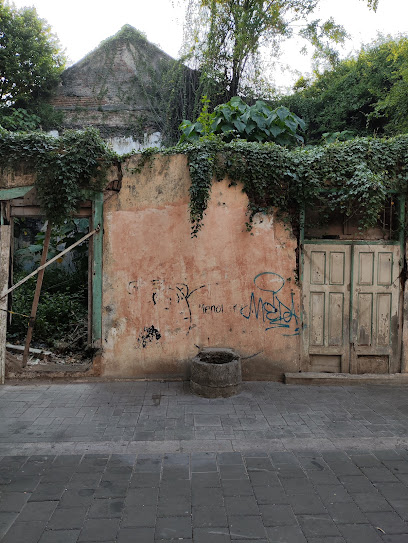
Eks Borneo Soematra Maatschappij Kantoor te Samarang
Discover the historical charm of Eks Borneo Soematra Maatschappij Kantoor in Semarang, a captivating landmark reflecting Indonesia's colonial heritage.
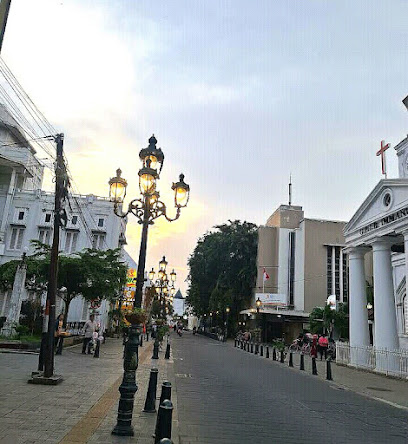
Unmissable attractions to see
Museum Kota Lama
Discover Semarang's rich history and vibrant culture at Museum Kota Lama, an engaging destination for all history enthusiasts.
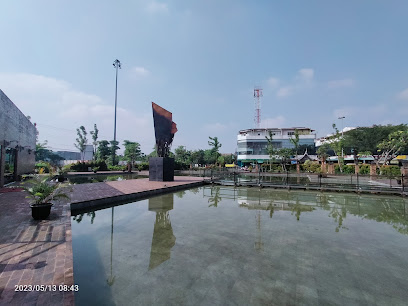
Semarang Creative Gallery
Explore the vibrant Semarang Creative Gallery, a hub of local craftsmanship and artistry in Central Java, where creativity comes to life.
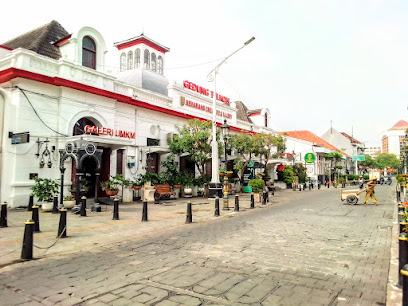
The Groot - Kota Lama Semarang
Experience the serene beauty of The Groot in Kota Lama Semarang, where nature meets history in a tranquil setting.
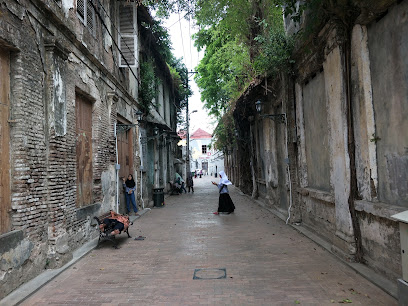
taman kota lama
Explore Taman Kota Lama in Semarang, a tranquil park blending lush greenery with rich colonial heritage, perfect for relaxation and cultural immersion.
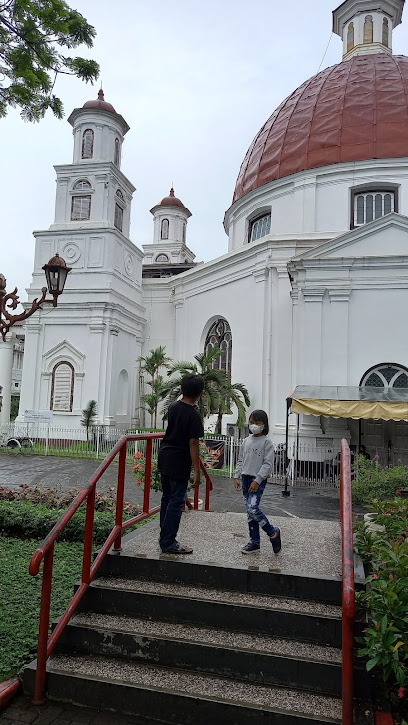
Rumah Pompa Kota Lama
Discover the historic Rumah Pompa Kota Lama in Semarang, a captivating landmark that showcases the city's colonial past and architectural beauty.
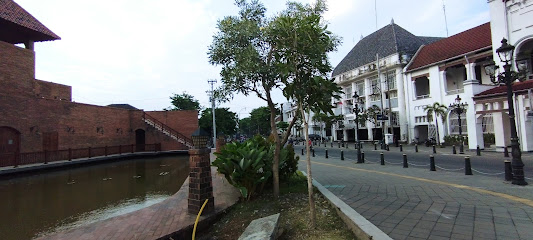
Kota lama
Explore Kota Lama, Semarang's historic quarter, where colonial architecture meets vibrant local culture and unforgettable experiences await every traveler.
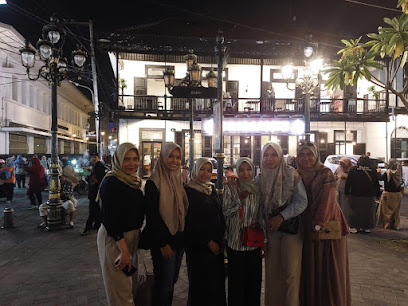
sumur tua kota lama
Explore the captivating history of Semarang at Sumur Tua Kota Lama, a historical landmark that unveils the city's colonial past.
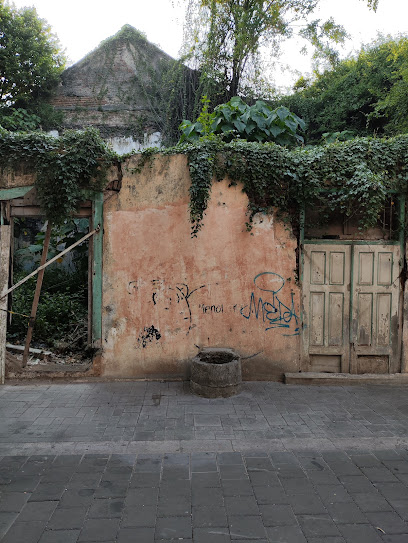
Essential places to dine
Spiegel All Day Bar & Dining
Discover culinary excellence at Spiegel All Day Bar & Dining in Semarang – where exquisite dining meets vibrant nightlife.
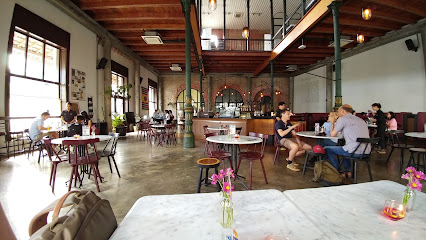
Ikan Bakar Cianjur - Kota Lama
Experience authentic Sundanese flavors at Ikan Bakar Cianjur, an iconic ikan bakar restaurant in Semarang's historical Kota Lama.
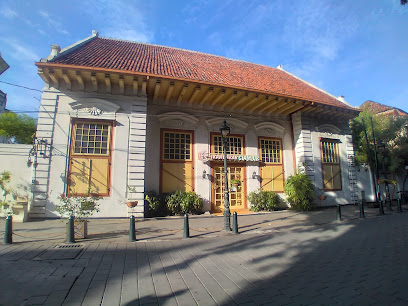
Pringsewu Kota Lama Semarang
Discover authentic Indonesian cuisine at Pringsewu Kota Lama Semarang - where history meets flavor in every dish.
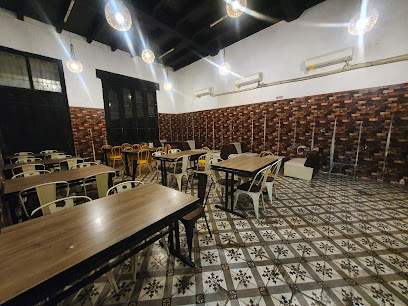
Sate & Gule Kambing 29 - Gereja Blenduk
Experience authentic Indonesian flavors at Sate & Gule Kambing 29, where delicious satay and rich local dishes await you.
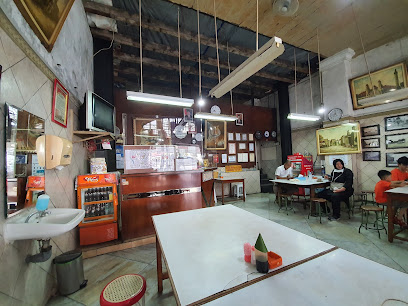
SILVERSPOON Restaurant & Bar Kota Lama
Experience the best of Central Java's cuisine at SILVERSPOON Restaurant & Bar in Kota Lama - where tradition meets innovation.
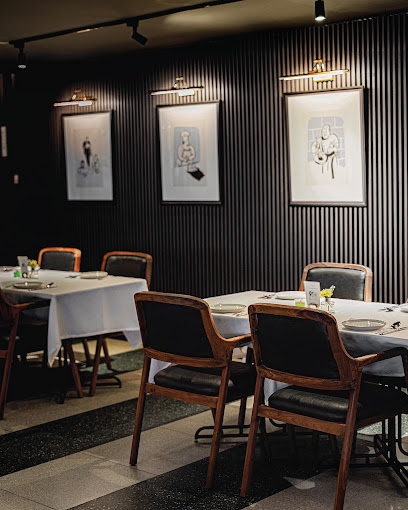
KOOPMAN Resto - Kota Lama
Discover the flavors of Indonesia at KOOPMAN Resto in Kota Lama—where tradition meets modernity in every bite.
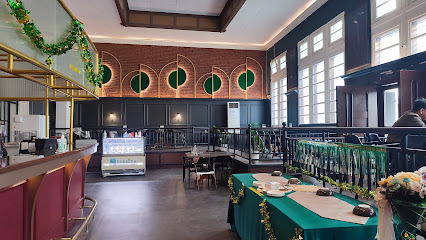
Soto Seger Old City Semarang
Experience authentic Indonesian cuisine at Soto Seger Old City Semarang, where every bowl tells a story of tradition and flavor.
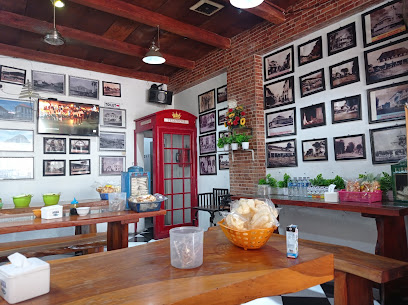
Wardim Kota Lama Semarang
Experience authentic dim sum at Wardim Kota Lama Semarang, where tradition meets flavor in a charming setting.
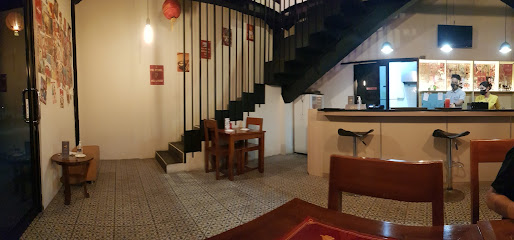
Kepanggih Kota Lama
Experience authentic Indonesian cuisine at Kepanggih Kota Lama in Semarang's charming Old Town – where tradition meets modern dining.
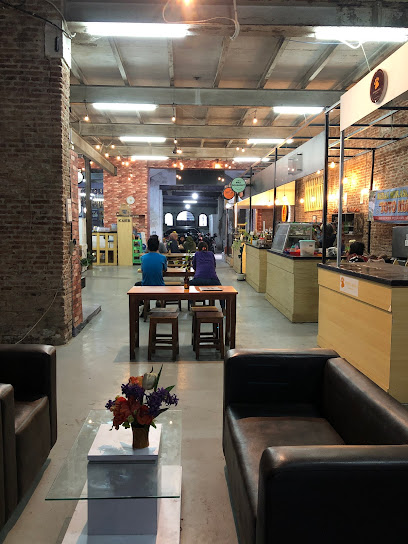
AKU MASIH ANAK SEKOLAH kitchen
Savor authentic Indonesian cuisine at AKU MASIH ANAK SEKOLAH kitchen in Semarang's charming Old Town.
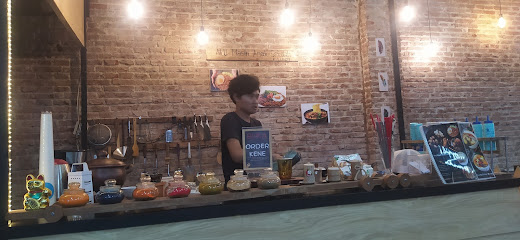
Markets, malls and hidden boutiques
Paragon City Mall Semarang
Discover shopping, dining, and entertainment at Paragon City Mall Semarang, a vibrant hub in Central Java for tourists and locals alike.
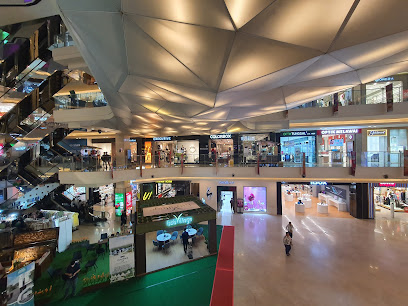
Old Town Semarang
Explore Old Town Semarang, a historical treasure in Central Java with vibrant culture, captivating architecture, and delicious street food.
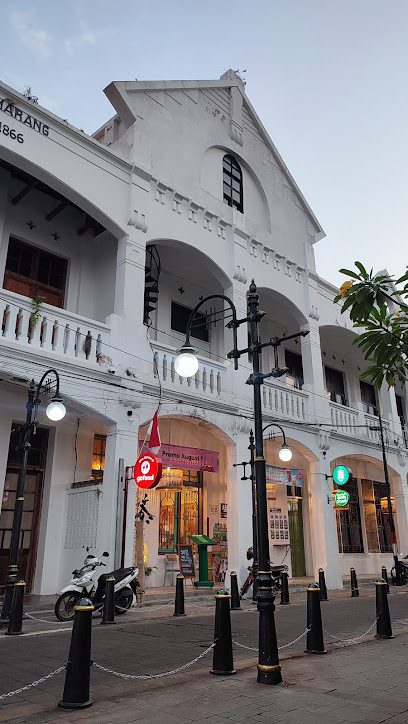
Tekodeko Koffiehuis
Immerse yourself in the local coffee culture at Tekodeko Koffiehuis in Semarang, where tradition meets modern comfort.
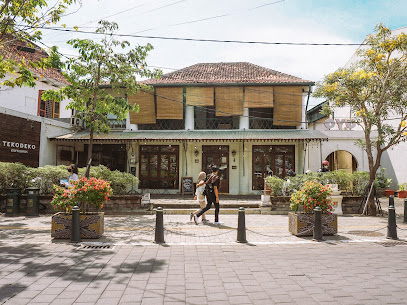
Bloomery Cake & Patisserie Kota Lama Semarang
Indulge in exquisite cakes and artisanal pastries at Bloomery Cake & Patisserie, a sweet gem in Semarang's historic Kota Lama.
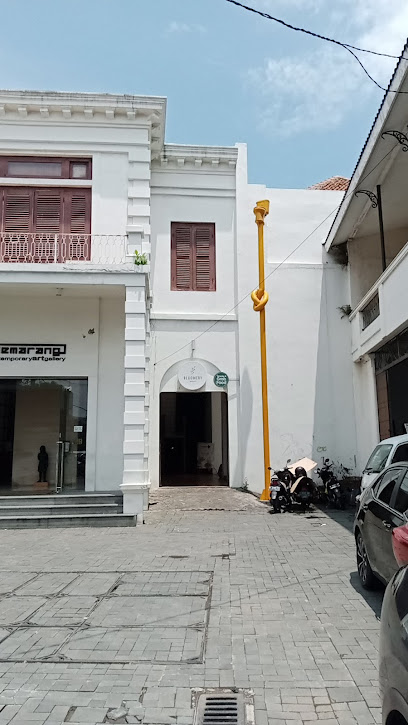
Starbucks Kota Lama
Discover the perfect blend of modern comfort and historical charm at Starbucks Kota Lama, a must-visit coffee shop in Semarang's Old Town.
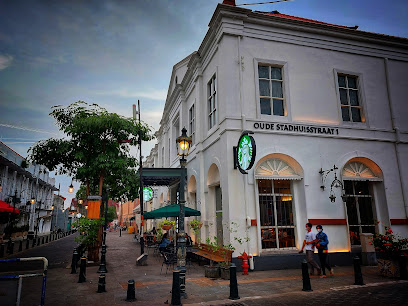
Oud En Nieuw by Toko Oen
Experience the best of Semarang's ice cream and barbecue at Oud En Nieuw by Toko Oen, a culinary delight for every visitor.
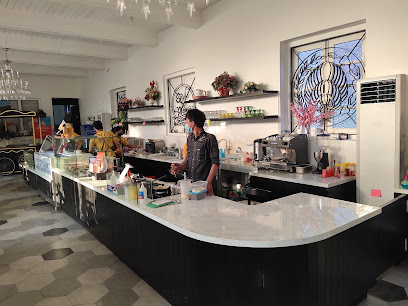
Saint Store Semarang
Discover the essence of Central Java's fashion at Saint Store Semarang, where style meets local culture in a vibrant shopping experience.
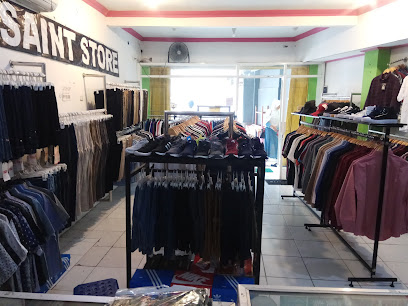
Pasar Barang Antik Kota Lama
Explore the vibrant Pasar Barang Antik Kota Lama, where history and culture converge in a unique antique shopping experience in Semarang.
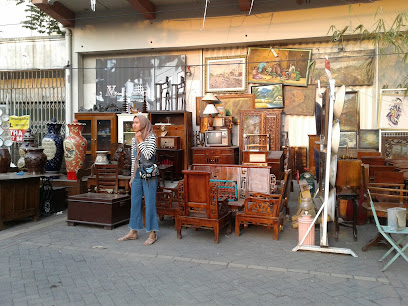
District 22 (Pusat Oleh - Oleh Kota Lama Semarang)
Explore District 22 in Semarang, a supermarket treasure trove offering local delights and a taste of Central Java's vibrant culture.
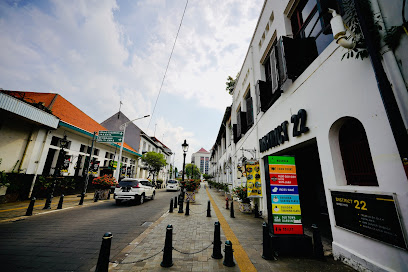
Outstadt - Authentic Semarang
Explore Outstadt in Semarang for authentic souvenirs, local crafts, and a taste of Central Java's rich cultural heritage.
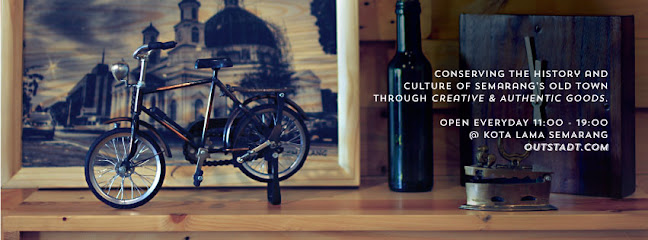
Kota Lama Toko
Discover the vibrant world of textiles at Kota Lama Toko, Semarang's premier destination for unique fabrics and traditional craftsmanship.
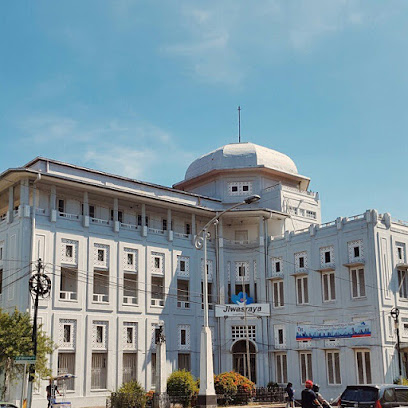
Wayang Suket Kota Lama Semarang
Explore Wayang Suket Kota Lama Semarang - A treasure trove of Javanese culture and antique craftsmanship in the heart of Central Java.
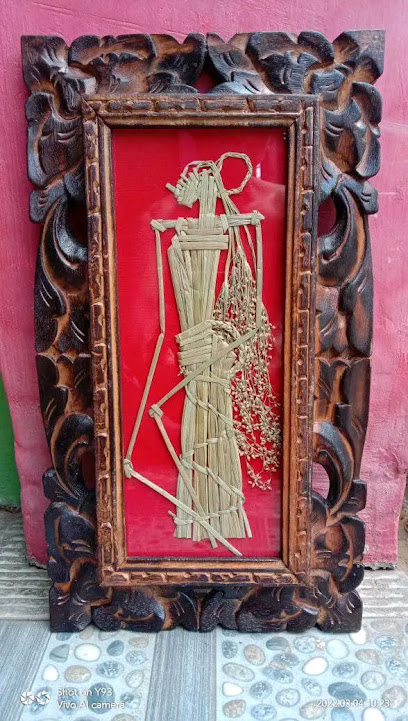
Batik Jayakarta Kota Lama
Discover the vibrant artistry of Indonesian batik at Batik Jayakarta Kota Lama, where tradition meets contemporary style in Semarang's historic heart.
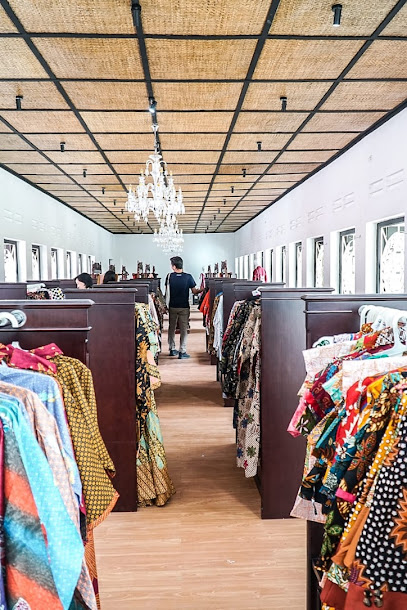
Essential bars & hidden hideouts
Spiegel All Day Bar & Dining
Experience the vibrant culinary scene at Spiegel All Day Bar & Dining in Semarang, where delightful flavors meet lively entertainment.
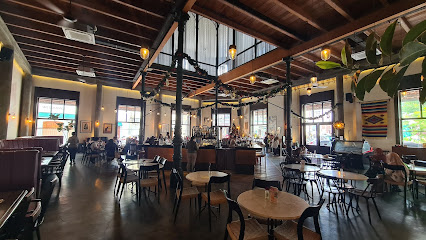
Sakapatat Beer Garden & Resto
Experience the vibrant flavors and lively atmosphere at Sakapatat Beer Garden & Resto in Semarang, a must-visit culinary hotspot.
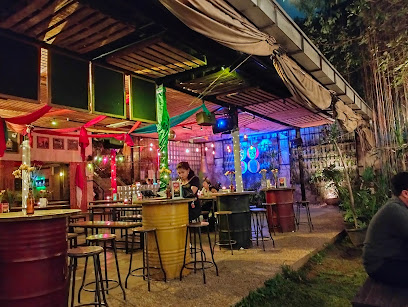
AtoZ Bar Wine & Brasserie
Experience the exquisite fusion of flavors at AtoZ Bar Wine & Brasserie, where fine dining meets a lively bar atmosphere in Semarang.
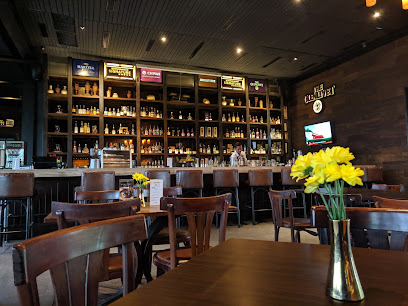
Wishbone Bar
Discover the vibrant nightlife of Semarang at Wishbone Bar, renowned for its innovative cocktails and lively atmosphere, a true gem in Central Java.
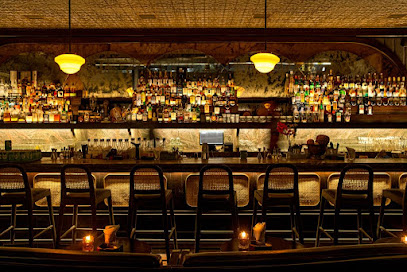
Laroka
Discover the vibrant flavors of Laroka, Semarang's premier bar and grill with exquisite cocktails and delectable Italian cuisine.
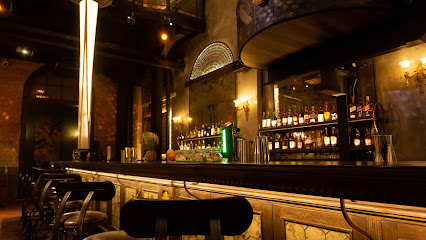
KOOPMAN Resto - Kota Lama
Experience the rich flavors of Central Java at KOOPMAN Resto in the historic Kota Lama, Semarang, blending local delicacies with a cozy atmosphere.
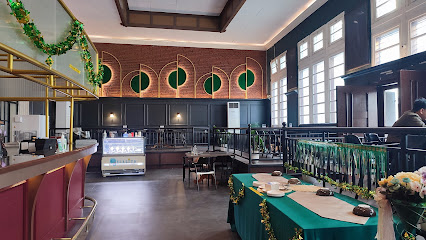
On On Pub
Discover On On Pub in Semarang, where delicious cuisine meets a lively sports atmosphere for an unforgettable night out.
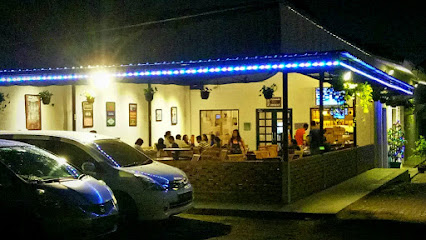
POTS Bar
Discover the lively nightlife at POTS Bar in Semarang, where expertly crafted cocktails and a vibrant atmosphere await you.
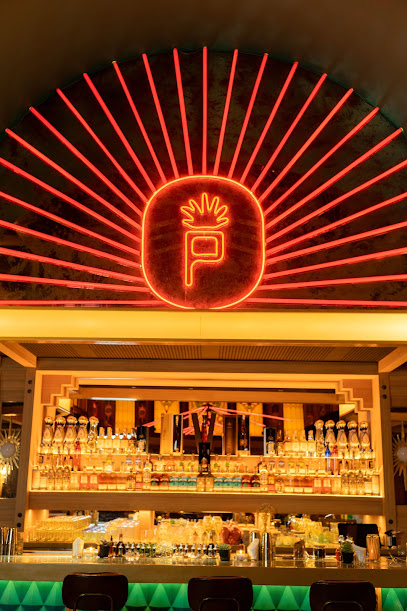
HW Livehouse Semarang
Discover the vibrant nightlife of Semarang at HW Livehouse, a premier lounge offering live music, delicious drinks, and a lively atmosphere.
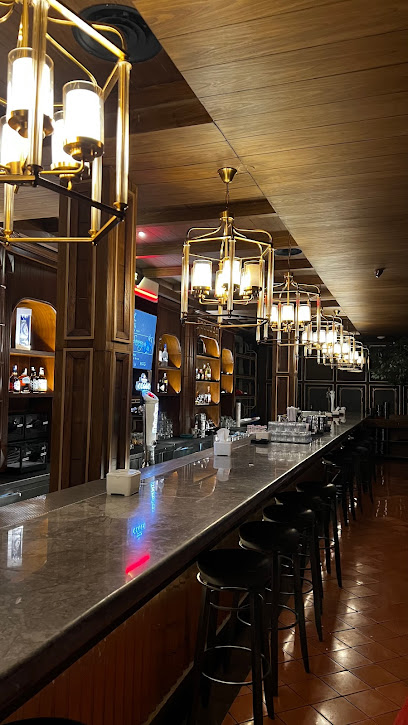
Teh Kota Lama
Experience the perfect blend of tradition and modernity at Teh Kota Lama, a must-visit bar in Semarang for a vibrant night out.
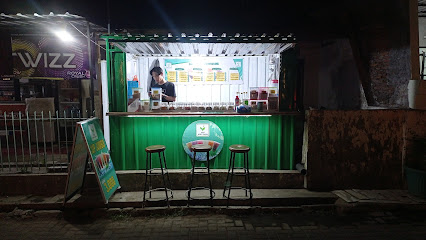
Local Phrases
-
- HelloHalo
[ha-loh] - GoodbyeSelamat tinggal
[se-la-mat ting-gal] - YesYa
[ya] - NoTidak
[tee-dak] - Please/You're welcomeSilakan
[see-la-kan] - Thank youTerima kasih
[te-ree-ma ka-see] - Excuse me/SorryMaaf
[ma-af] - How are you?Apa kabar?
[a-pa ka-bar] - Fine. And you?Baik. Dan kamu?
[ba-ik. dan ka-mu] - Do you speak English?Apakah kamu bisa berbahasa Inggris?
[a-pa-kah ka-mu bee-sa ber-ba-ha-sa ing-gris] - I don't understandSaya tidak mengerti
[sa-ya tee-dak meng-er-tee]
- HelloHalo
-
- I'd like to see the menu, pleaseSaya ingin melihat menu, tolong
[sa-ya in-gin me-li-hat me-nu, to-long] - I don't eat meatSaya tidak makan daging
[sa-ya tee-dak ma-kan da-yang] - Cheers!Selamat minum!
[se-la-mat mi-num] - I would like to pay, pleaseSaya ingin membayar, tolong
[sa-ya in-gin mem-ba-yar, to-long]
- I'd like to see the menu, pleaseSaya ingin melihat menu, tolong
-
- Help!Tolong!
[to-long] - Go away!Pergi!
[per-gi] - Call the Police!Panggil polisi!
[pang-gil po-li-si] - Call a doctor!Panggil dokter!
[pang-gil dok-ter] - I'm lostSaya tersesat
[sa-ya ter-se-sat] - I'm illSaya sakit
[sa-ya sa-kit]
- Help!Tolong!
-
- I'd like to buy...Saya ingin membeli...
[sa-ya in-gin mem-be-li] - I'm just lookingSaya hanya melihat-lihat
[sa-ya hun-ya me-li-hat-li-hat] - How much is it?Berapa harganya?
[ber-a-pa har-ga-nya] - That's too expensiveItu terlalu mahal
[i-tu ter-la-lu ma-hal] - Can you lower the price?Bisa kurangi harganya?
[bee-sa kur-ang-gi har-ga-nya]
- I'd like to buy...Saya ingin membeli...
-
- What time is it?Jam berapa sekarang?
[jam ber-a-pa se-ka-rang] - It's one o'clockJam satu
[jam sa-tu] - Half past (10)Setengah sebelas
[se-ten-gah se-be-las] - MorningPagi
[pa-gi] - AfternoonSore
[so-re] - EveningMalam
[ma-lam] - YesterdayKemarin
[ke-ma-rin] - TodayHari ini
[ha-ri i-ni] - TomorrowBesok
[be-sok] - 1Satu
[sa-tu] - 2Dua
[du-a] - 3Tiga
[ti-ga] - 4Empat
[em-pat] - 5Lima
[li-ma] - 6Enam
[e-nam] - 7Tujuh
[tu-juh] - 8Delapan
[de-la-pan] - 9Sembilan
[sem-bi-lan] - 10Sepuluh
[se-pu-luh]
- What time is it?Jam berapa sekarang?
-
- Where's a/the...?Dimana...
[di-ma-na] - What's the address?Alamatnya apa?
[a-lam-at-nya a-pa] - Can you show me (on the map)?Bisa tunjukkan saya (pada peta)?
[bee-sa tun-juk-kan sa-ya (pa-da pe-ta)] - When's the next (bus)?Kapan yang berikutnya (bus)?
[ka-pan yang be-ru-tun-ya (bus)] - A ticket (to ....)Satu tiket (ke ....)
[sa-tu ti-ket (ke)]
- Where's a/the...?Dimana...
History of Kota Lama
-
Kota Lama, the Old Town of Semarang, was established during the Dutch colonial era in the 18th century. The area became a crucial trade center due to its strategic location along Java's northern coast, facilitating the exchange of goods between Europe and Asia. The architecture reflects a blend of Dutch and local influences, with many buildings constructed in the Art Deco and Neoclassical styles, showcasing the wealth generated from trade.
-
Throughout the 19th century, Kota Lama became a melting pot of cultures, with Chinese, Arab, and Javanese communities establishing themselves alongside the Dutch settlers. This cultural diversity is evident in the area’s architecture, cuisine, and festivals, contributing to the rich tapestry of Semarang’s local identity. The blend of cultures can be seen in the iconic *Sam Poo Kong* temple, a historical site dedicated to the Chinese Muslim explorer Zheng He.
-
By the late 19th century, Kota Lama was a bustling hub for commerce and industry. The establishment of the *Société de Banque* and various shipping companies in the area marked Semarang's growth as a key port city. This period saw the construction of important infrastructure, including warehouses and banks, which facilitated the booming trade in sugar, coffee, and textiles, particularly during the Dutch exploitative practices in the region.
-
During World War II, Kota Lama, like much of Indonesia, was occupied by Japanese forces from 1942 to 1945. This period brought significant hardship to the local population, including forced labor and resource extraction. However, it also led to a rise in nationalist sentiments among the local population, laying the groundwork for post-war independence movements that would emerge in the following years.
-
After Indonesia gained independence in 1945, Kota Lama experienced a decline in urban significance as economic activities shifted towards newer areas of Semarang. Many colonial-era buildings fell into disrepair, leading to concerns about cultural heritage preservation. Efforts to revitalize the area began in the late 20th century, recognizing its historical and architectural significance as part of Semarang's identity.
-
In recent years, Kota Lama has undergone extensive restoration efforts aimed at revitalizing its historical sites and promoting tourism. The establishment of cultural events, art galleries, and cafes in restored buildings has breathed new life into the area. The local government and community initiatives emphasize preserving Kota Lama's heritage while encouraging sustainable tourism, making it a vibrant cultural destination in Semarang.
Kota Lama Essentials
-
Kota Lama is easily accessible from various neighborhoods in Semarang. From the Semarang Tawang Railway Station, you can take a local taxi or ride-sharing service to Kota Lama, which is approximately 3 km away. Buses also operate regularly from other areas of the city. If you are traveling from the airport, consider taking a taxi or arranging a shuttle service for a more direct route.
-
Kota Lama is a compact area that is best explored on foot to fully appreciate its historical architecture and vibrant street life. Bicycle rentals are available, and some local services offer guided bike tours. For longer distances, you can use local taxis or ride-sharing apps. Public buses also service the area, but they may be less frequent.
-
Kota Lama is generally safe for tourists, but it's wise to remain vigilant. Areas near the old port can be less safe, particularly after dark. Petty crimes, such as pickpocketing, may occur in crowded places. Always keep an eye on your belongings and avoid displaying expensive items in public.
-
In case of an emergency, dial 112 for police assistance or 118 for medical emergencies. Local hospitals and clinics are available within the city. It is recommended to have travel insurance that covers emergencies. Pharmacies are also nearby for minor health issues.
-
Fashion: Do dress modestly, especially when visiting religious sites. Avoid wearing revealing clothing. Religion: Do respect local customs and traditions. Always ask for permission before taking photos in religious areas. Public Transport: Do be respectful and give up your seat to elderly passengers. Don't eat or drink on public transport. Greetings: Do greet people with a smile and a handshake. Eating & Drinking: Do try local delicacies and accept food offerings graciously. Don’t refuse hospitality, as it is considered impolite.
-
To experience Kota Lama like a local, visit the traditional markets for fresh produce and local crafts. Engage with local street vendors and try local snacks like lumpia or tahu gimbal. Consider taking a guided walking tour to learn about the history of the area. Don't miss the sunset views along the river, and be sure to try the local coffee at one of the many cozy cafes.
Trending Landmarks in Kota Lama
-
Old Town Semarang
-
Museum Kota Lama
-
Rumah Akar Kota Lama Semarang
-
The Groot - Kota Lama Semarang
-
taman kota lama
-
Kantoor van de Nederlandsch-Indische Levensverzekering en Lijfrente Maatschappij (NILLMIJ)
-
Rumah Pompa Kota Lama
-
Wisata Millennial Kota Lama Semarang
-
sumur tua kota lama
-
Eks Borneo Soematra Maatschappij Kantoor te Samarang
Nearby Cities to Kota Lama
-
Things To Do in Yogyakarta
-
Things To Do in Surabaya
-
Things To Do in Bandung
-
Things To Do in Jakarta
-
Things To Do in Bali
-
Things To Do in Poon Saan
-
Things To Do in Settlement
-
Things To Do in Flying Fish Cove
-
Things To Do in Drumsite
-
Things To Do in Greta Beach
-
Things To Do in Kuching
-
Things To Do in Balikpapan
-
Things To Do in Makassar
-
Things To Do in East Coast Park
-
Things To Do in Sentosa








